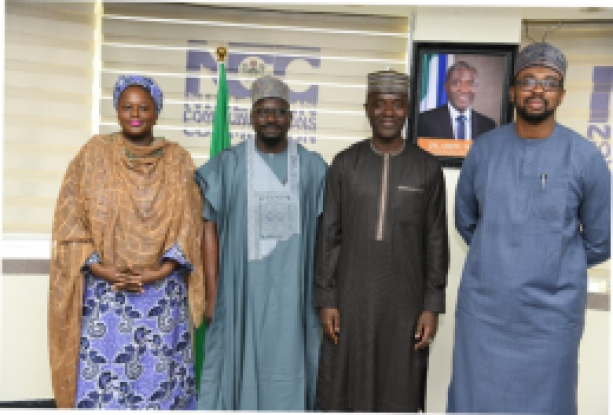The Two Agencies Are Partnering To Support The Telecom Sector
4th July 2025 12:47 PM ![]()

The Nigerian Communications Commission (NCC) has inaugurated the NCC–REA Collaboration Committee.
The NCC says this is an important step towards ehancing the country’s digital and energy inclusion objectives.
This involves developing modalities for the deployment of renewable energy to support Nigeria's telecom infrastructure.
The inauguration, which was held at the NCC Headquarters in Abuja was presided over by the Executive Vice Chairman and Chief Executive Officer of the Commission, Dr. Aminu Maida, who was joined by the Managing Director of the Rural Electrification Agency (REA), Abba Aliyu, alongside senior executives and committee members from both organizations.
Dr. Maida described the partnership between NCC and REA as a timely and strategic alignment of national priorities, aimed at bridging the connectivity and power gaps that continue to limit development in Nigeria’s rural and underserved areas.
The NCC boss said that while telecommunications infrastructure requires reliable and sustainable energy to function optimally, renewable energy solutions also benefit from the demand generated by expanding digital services and connected communities.
“Whether it is powering a base station or enabling a child to access digital learning, this partnership has the potential to transform realities and bring opportunity closer to the people”, Dr. Maida said.
He charged the Committee members to approach their assignment with clarity, innovation, and a shared determination to deliver tangible results.
Managing Director of the Rural Electrification Agency (REA), Abba Aliyu expressed optimism about the transformative potential of the collaboration.
The collaboration committee has been established to co-develop and implement integrated solutions for renewable energy infrastructure to power telecom sites, share geospatial data for improved planning, and track socio-economic impact through clear performance indicators.
The Committee is expected to serve as a model for inter-agency cooperation, demonstrate how collaborative governance can accelerate progress in line with the nation’s National Broadband Plan and overall sustainable development agenda.